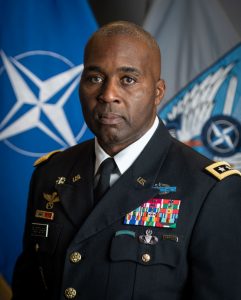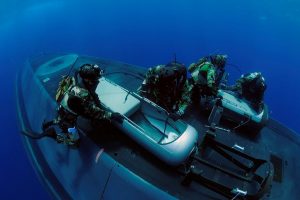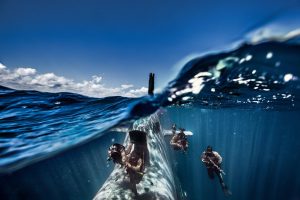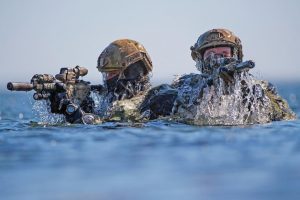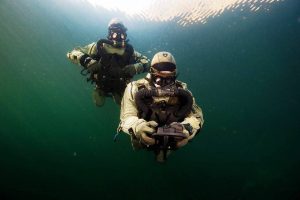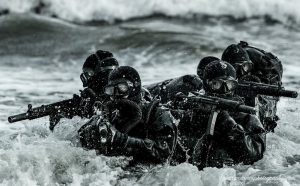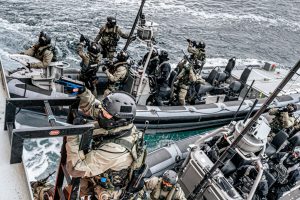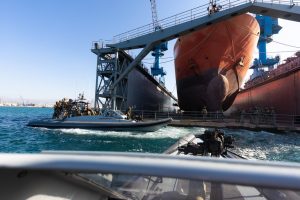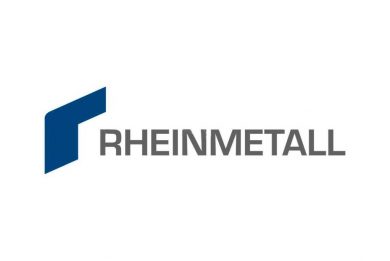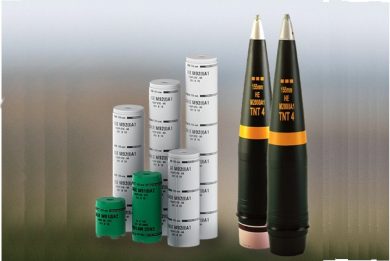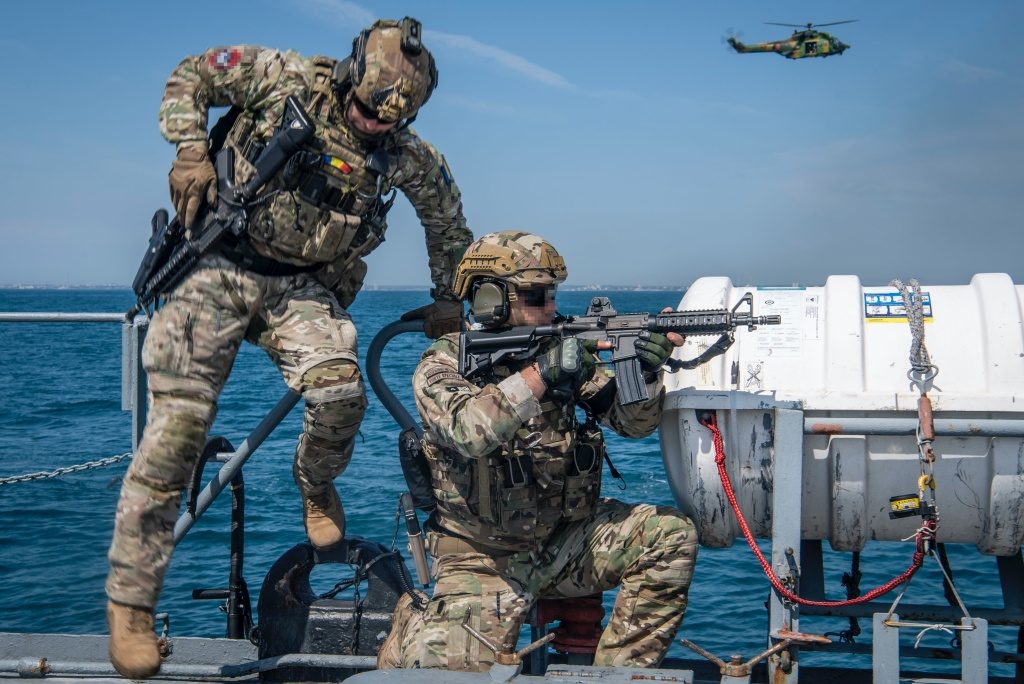
NATO SOF Maritime community meets to stimulate developments and interoperability
The first NATO Special Operations Forces Maritime conference took place on March 29 – 30, at the Italian Navy’s special forces and divers command (COMSUBIN) base in La Spezia, Italy, hosted and organized by the Italian Joint Command for Special Operations (Comando Interforze per le Operazioni Speciali) in collaboration with NATO Special Operations Headquarters (NSHQ), Belgium.
EDR On-Line got the opportunity to shortly interview Lieutenant General Antonio Fletcher, Commander NSHQ on how this first meeting opportunity of the dedicated Maritime units community will stimulate and foster the continued development and interoperability of Maritime SOF capabilities across the Alliance.
This was possibly the first maritime Special Operation Forces Conference, which were the objectives of this conference and can you tell something on its preliminary results?
“This is obviously the first time for me because I’ve only been in command six months, but I think it is the first maritime SOF conference. We decided to hold something like this because we identified that over the past decade or so, we’ve been hyper focused on our air and land operations from a SOF perspective. And we understand that going forward, that the maritime domain has been under-invested and in order to meet the requirements and or needs to secure and defend NATO, we have to make a larger effort to ensure that we are prepared to defend NATO in the maritime domain as well. And so we wanted to hold the conference. It was about bringing the maritime community of interest together, discuss amongst ourselves to determine some shared objectives, and ultimately determine a way forward that we all agreed upon, to identify where there are challenges and opportunities to improve our ability to be effective in the maritime domain. So thus far, we’re off to a good start. Yesterday, there were a series of breakout sessions where we actually got into the details of the plan and what the way forward will look like.”
So really, the NSHQ laid the foundation for NATO Maritime Special Operations Forces for availability. What does it include? How long will it take to develop this program? What is the way of putting together the whole Alliance maritime community?
“Currently, we have maritime SOF expertise as a part of NATO. So our objective, my intent, is to continue to build upon the expertise that exists and ensure there is enhanced interoperability across the Alliance when it comes to special operations in the maritime domain. So my answer would be that this is an enduring commitment to ensure we are prepared to defend NATO in the maritime domain. So although we are looking at certain objectives and we’re trying to improve upon the current capability that exists, I don’t see that there is an end date in the sense that the program will be complete in two to three years. It is a sustainment piece. It’s an enduring commitment. It’s a continual evolution of our capability to ensure that we are ready and prepared to meet the threats that we would potentially have to address in the maritime domain.”
How is it important for NATO nations to have maritime special operation forces, and it is this limited only to coastal nations or also landlocked nations?
“Well, I think the determination whether they want to have a maritime capability is a national decision. But I will tell you that in order to defend and ensure the security and sovereignty of NATO as an Alliance, I think nations have to be prepared to address the threats in all domains, whether it’s air, land or sea. And so because nations also have a 360° requirement to respond in support of NATO, you may have nations that are not just coastal nations that see a need or a requirement for maritime expertise because the Alliance is relying upon nations declaring support to NATO. And so even a landlocked country can see a need for a maritime capability. So we’re going to make this available and known to all, and then it’s a national decision whether or not they go down the path of determined enhanced maritime capability.”
What do you see as the role for maritime special operation forces to work together in conflicts and crisis?
“I think ultimately the role that maritime SOF plays in conflict and crisis is once again back to deter and defend the Alliance. And I think the maritime domain is a key aspect, but it’s just one of the aspects as well. I mean, there’s a land component, there ‘is an air component, there ‘is a cyber component, there ‘is a SOF component. And so in all these domains, for us to be effective, we have to be prepared to respond, to deter, to defend. And so the role of maritime SOF is similar to every other domain is that you’ve got to build credible, capable, ready, reliable forces in order to deter and defend the Alliance when called upon. And so right now we are hyper focused on maritime, but it is part of building an enhanced joint force capable of defending across the Alliance.”
Why was Italy chosen to host this conference?
“I had a lot of recommendations, but when we took a hard look at where we should hold the initial maritime conference, we chose Italy primarily based on its rich history, its competence in combat, its expertise and innovation, its desire to continue to experiment. And so we saw Italy as the place that represented the most of what we were trying to achieve with the conference. And then ideally, going forward, we know that based on Italy’s history, it serves as not only a shining example, but potentially a lighthouse for all of NATO to aspire to replicate the level of capability and competency that resides within its maritime SF force.”
Looking at increasing interoperability, do you foresee more obstacles in training, intelligence sharing procedures or equipment?
“I think that there are obstacles and challenges with all the aspects you just mentioned. But I think that in this community, especially in this community, when we see challenges we find creative solutions to most of the problems that were faced with. So I think that a part of the conference objectives was really just bringing this community together to address and discuss those types of challenges across equipment, training and other aspects, to come up with potential solutions that we could share across the Alliance. And so I think that once again, the value of bringing this community together at this conference is just about bringing the experts together and providing solutions to the aforementioned problems. So there are challenges in all aspects, but I think based on what I’ve heard during the conference, I’m pretty confident that we have the right people, having the right discussions and finding creative solutions to all those issues.”
Exchanges, mostly at the national level, have been ongoing for a long time. Do you foresee the creation of a specific Maritime Special Forces Centre of Excellence within NATO to allow further improvements into the standardisation process?
“I think that as we develop the program, we will work with all NATO members to determine if this is something that they desire, because in the end, this will be an Alliance decision. My job is ensuring that we are as interoperable as possible. We offer many solutions to training requirements and or interoperability challenges. Some could potentially be at our NATO special operations school. Some will be through a series of mobile exchanges for training. Some will be through distributed learning. So there are many ways to ensure a nation gets an opportunity for the development of a maritime capability. So having a maritime Centre of Excellence is an option, and that is one of the things we have discussed this week. Is that the best way to address the challenges that we face in the maritime domain.”
EDR On-Line: Last question: obviously, for special operations, numbers versus quality, especially for the naval Special Forces, remains a dilemma. How do you see it from your current position?
“I think the answer is that it requires a very exquisite solution. We have to optimize both the quantity and the quality of our maritime expertise. You cannot have one without the other to fully address the challenges that we will face in the maritime domain. We have a goal of producing high end capability, but also a goal of producing what NATO requires defending the Alliance in all domains. And so at times it is never helpful to separate the two. I think they are reliant on each other, and we need to find an optimal solution based on what a country can provide and or other resources that are available. So optimally we address both, but we cannot separate them because they’re both essential to producing both NATO requirements and or the expertise needed to be successful.”
All photos courtesy NATO

